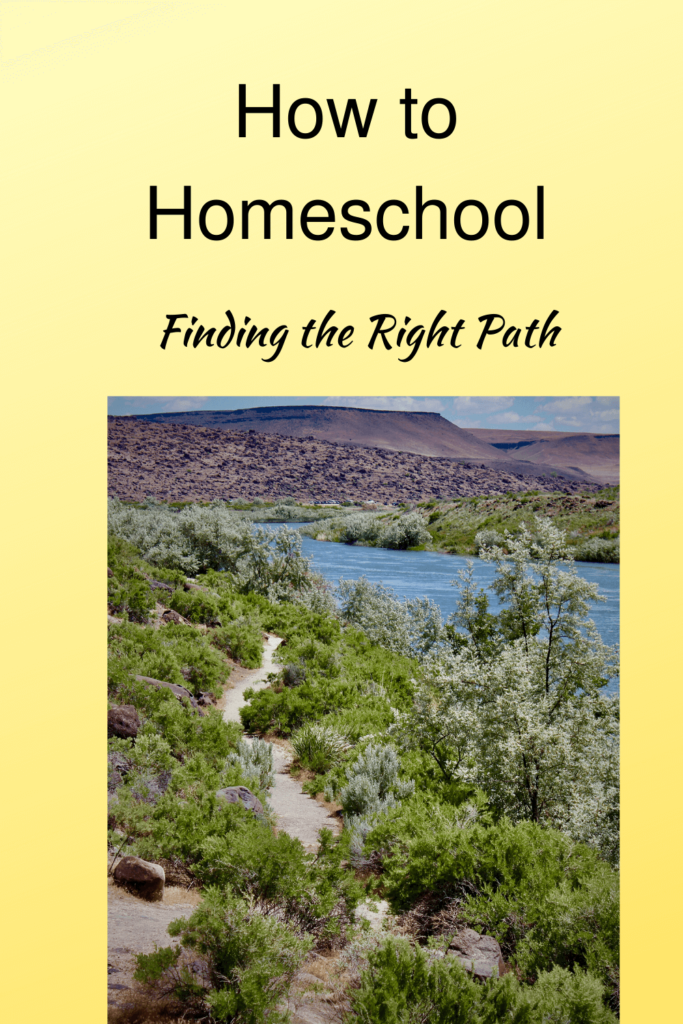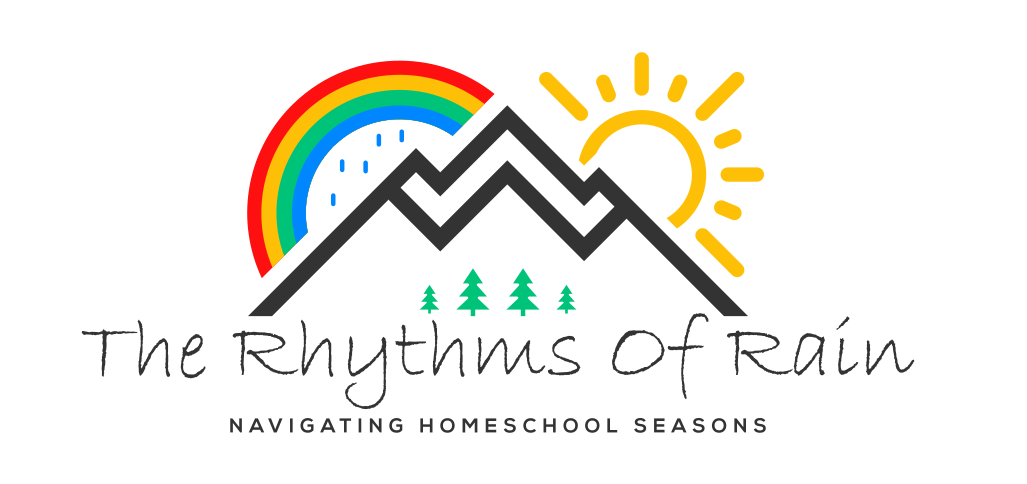The unrelenting spring of 2020 abruptly transitioned thousands of parents to what has become known as “crisis homeschooling.” Now many families are beginning to ask, “What now? What should be our plan for fall? Should we be thinking about homeschooling?”
Depending on the state, many schools are iffy on whether they’ll even open in the fall, at least without serious restrictions. Teachers have had an unbelievably stressful semester (including myself as a college adjunct). All told, there has been more than enough chaos to go around several times over.

Should you homeschool?
Being an active member of a few social media homeschooling boards, I’ve heard the chatter: more parents are beginning to explore the option of homeschooling their children beginning in the fall. This even includes families for whom the thought had never previously crossed their minds.
However, it can be a big, perhaps seemingly gigantic hurdle to travel from a “maybe” to a “yes, we’re in this thing!” A lot of natural hesitation might stem from the sheer unknown, not being sure where to turn for help. Finding the homeschooling path can seem like the most massive undertaking a family could take. Although in some ways it is, it can also be incredibly doable if broken down into smaller steps. But be sure to take deep breaths along the way.
Our family has just completed our seventh year of homeschooling. We actually finished early this year, as we had PLENTY more time for schoolwork while in quarantine. We will begin our eighth year in the late summer or fall of 2020. Not too long ago I was the newbie having no clue how to homeschool or if I could reasonably pull it off.
Now our homeschool experience shifts yearly; we even took one year off and joined a private school. However, I no longer feel as overwhelmed. Having several years under my belt helps me navigate the changes each year brings. For instance, I will have a big adjustment this year as I begin an official high school transcript. But anticipating that major change early on, I’ve already begun preparing myself for it mentally and practically.
Homeschooling is not much different than any other major venture. It can be super daunting to get started, but easier to maintain once firmly begun. I wrote about the many benefits we have discovered and loved since we began our homeschooling journey here. In this post, however, I will stick to some practical advice to help get a family off the ground and on the path.
Homeschool Lingo
First, here are a few terms you might hear tossed around, but not know what they mean at all, or only what they vaguely mean.
Deschooling
This term refers to a decompression time after pulling a child out of a school situation. Children might need to “deschool” if they have been bullied, are saying they hate to learn, or otherwise did not have their needs adequately met in their specific situation. Perhaps they “fell through the cracks” in some way with special needs, etc.
A “deschooling” time often consists of no formal schoolwork. Instead, it involves time adjusting to being home together, going on field trips, doing healthy and productive things the child loves, and reading books. It could mean taking time to discover the learning style of the child and the teaching style of the parent(s). Basically, the goal of deschooling is carefully build a better foundation for a more positive homeschooling journey ahead. The child may need to rediscover the joy of learning, and the parent usually needs to find his/her footing too. If done right, an indeterminate time of deschooling can be invaluable to future educational success.
Unschooling
Although they have similar names, unschooling should not be confused with deschooling. Unschooling is an educational philosophy that is more child-led than perhaps others. A family who unschools may not use a particular boxed curriculum, or at least not for certain subjects. Instead, the teaching parent follows a child’s natural interests and develops a course of education from there. Self-classified unschoolers may vary widely in their methods, so it is hard to put the philosophy of unschooling into one simple box.
Classical Education
This is another educational/philosophy that is growing wildly in popularity, both among the homeschooling community and many private schools. Classical education is a desire to bring back the former ways of education from decades ago. It is educating a child according to the Latin term “Trivium,” or three stages of learning: the grammar, logic/dialectic, and rhetoric stages.
The grammar stage includes the traditional elementary years where the focus is on the memorization of facts–and lots of them. In middle school, children enter the logic/dialectic stage where they learn to process and analyze the factual knowledge they have stored up, make solid connections, and ask the right questions. This sets the scene for the rhetoric stage in high school where ideally the teenager can now write, speak, and argue competently and fluently.
A typical approach to classical education also involves substantial Latin instruction (and/or other classical languages like Greek) and reading and analyzing age-appropriate classical literature and whole books.

Practical Suggestions You Can Begin Now
Now that we’ve gotten a few terms out of the way, here are some further suggestions:
Join Social Media Homeschool Boards
Even if you decide not to post any questions at all, I can guarantee other new parents will. You will be able to glean a lot of information passively by just reading posts until you’re ready to jump in and actively participate. Plus, most homeschooling boards maintain an invaluable resource section, including files about co-ops, FAQs, field trips, etc. The parents on these boards are usually friendly, nonjudgmental, and eager to share what has worked for them. I have been a part of these boards in three different states by now, and all of them have provided me invaluable help and support.
Get to Know the Homeschooling Laws of Your State
Each state varies widely in its specific requirements as to reporting, standardized testing, etc. A great website to visit in order to become informed is the Home School Legal Defense Association (https://hslda.org/legal/). If you decide to become a homeschooling family, or if you desire to help protect other parents’ right to homeschool their children, consider becoming a member of HSLDA in the future.
Begin to Examine the Curriculum Choices
Truthfully, there is no easy answer on how to choose a curriculum from the great, vast ocean of choices. The curriculum choices are practically endless, and growing more endless each year. The right choice for one family is definitely not going to be the same as for another. A good place to start is Cathy Duffy’s well-known resource book, 102 Top Picks for Homeschool Curriculum.
You may also wish to attend a local homeschool curriculum fair to be able to see specific curricula in person. Any fairs happening in your local area will most likely be advertised on the homeschool boards. Many curricula are faith-based while others are secular. Many quality programs or classes are online; others are paper and pencil at home. Some will be more parent labor intensive than others. Take your time deciding what will work for you.
Keep in mind that if one isn’t working after trying it out, you can switch to another, even midstream. It’s okay! I know few homeschooling families who haven’t done that at least once, us included. Other homeschooling families may choose to use no particular curriculum at all, or at least not for every subject. That can often work out well too, considering are plenty of resources available for free on the Internet or through the local public library.
Speaking of Which…
Get to know your public library! The majority offer a surprising number of resources or educational classes for children that parents might not even think of. Many even offer foreign language instruction programs for free with your library card. Librarians will be happy to help inform you of all that they have to offer.
Give Yourself Plenty of Grace
Remember that you can start slowly. You don’t have to do everything all at once. This is easy to do if you’re starting with a young child, as they don’t require as much. But still, be sure and give yourself a wide berth of grace if you’re starting a homeschooling journey with an older child after years of traditional schooling. It may be a very welcome transition for both or all of you. But if not, know that chances are your new educational experience will improve after an adjustment period for all.
Know Whose Voice to Listen To
Last but definitely not least–you may need to ignore the advice/comments/suggestions/anecdotes from various well-meaning friends and family (especially those that are mostly uninformed about what homeschooling truly is). EVERYONE will have an opinion, and advice overload may only overwhelm you further. Know going into the debate whose opinion you would most value on the topic and feel free to let other opinions fly on by.
Bottom Line
If you are serious about making a go of it, there are plenty of guideposts and help along the way to get you off on the right foot, or to redirect you if you’ve gotten off on the wrong foot. It is a goal worth pursuing, as thousands of families have already discovered for themselves.

I’m a middle school teacher in TN and nervous about all of the unknowns for the future as it relates to going back to school. I found your post very interesting and informative – especially the definition of terms. Thanks for sharing!
Great post! I have a few kids we will be homeschooling (3rd grade and kindergarten) this fall (terrified to send them back to a campus setting) and I’m terrified! You brought up so many resources, I will begin sorting thru them today! I have to say I’m freaking out about homeschooling!!!!!
I enjoyed reading your tips for homeschooling! This will actually be our first year homeschooling. Our twin boys are 5 and when they were 3 we decided that we were officially going to start homeschooling them when they begin kindergarten. Seeing that this is actually coming at the same time as the pandemic that is currently happening, I am very grateful we made this decision a couple years prior. I have been doing some test runs with my boys on which style they gravitate towards and I feel that we fall right into the eclectic category. They love a mix of things, especially hands on things, reading and interactive learning resources. I know it won’t be perfect but I am really excited about this upcoming school year!
This is really helpful! My kids aren’t school age yet but I’m planning to homeschool when they are. I was homeschooled my whole life and never planned to homeschool my own kids but since having kids I really don’t want them going to school for many reasons. I actually know a few families that are planning to homeschool this year due to all the covid stuff. It’s a crazy time for sure! Thank you for sharing this. I’m starting to look towards what I will need to do when I I homeschool. My daughter will be preschool age in 1 more year.
Thank you for this resource. It’s so needed by parents. We decided to homeschool one of our children with ASD 2 years ago and it was so overwhelming at first. Giving yourself grace is such an important tip!! And using homeschool boards and groups as a resource. There are so many good resources out there for parents deciding to homeschool, that most parents don’t even realize! The last 2 years were therapy based for our son, and he did great. Our plan though was to re-enroll him this year as he’s now ready for the socialization and structure! However with Covid – who knows if that is happening. So we may be relooking are this for both our sons now and having to do the research on curriculums. Thanks for your advice!
These are great tips, especially in this time of transition for many parents!
A very timely post. I’ve been homeschooling my son due to his acting career, but now may have to do my high school daughter and not sure where to begin!
Great post! Such great information! We are moving to Florida in August and then Switzerland sometime this fall so I have decided to homeschool my kids until we are situation in Switzerland. I’m excited for this leap, but I am also nervous about how my children will do as their teacher.
Thanks for sharing!!! We are still not sure if we are going to homeschooling or not but these are great tips to start.
I have been homeschooling for 12 years, and this was definitively a big summer for new first time homeschoolers learning the ropes. Understanding a bit about the different homeschool philosophies and curriculum styles is helpful for moms to get the things that will work well with their family situation.